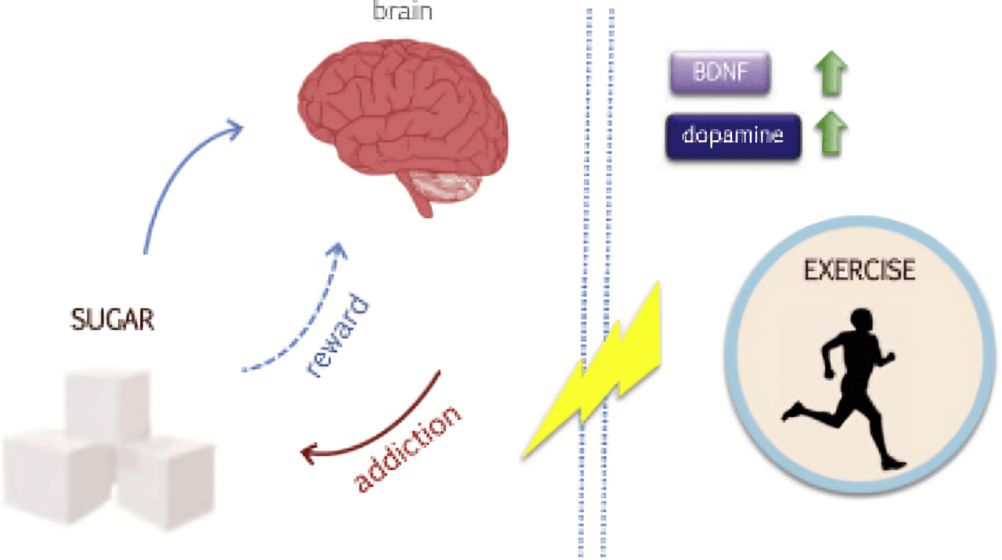
“
Food addiction and emotional eating are growing concerns in today’s fast-paced world, where stress and instant gratification shape our food choices. These behaviors often stem from emotional struggles, leading to unhealthy eating cycles. Understanding the root causes and practical solutions of food addiction and emotional eating is vital for improving mental and physical well-being.1
1
”
Food addiction is linked to brain chemistry, where certain foods trigger the release of dopamine, creating a pleasurable feeling that reinforces the urge to consume those foods repeatedly for emotional relief. 1
Emotional eating occurs when people consume food to cope with feelings such as stress, sadness, or boredom, often leading to overeating and a lack of control over their eating habits. 2

Research suggests that highly processed, sugar-rich foods can activate the same brain regions associated with addiction, making it more difficult for individuals to stop eating them even when not hungry.
Individuals who struggle with food addiction may find themselves trapped in a cycle of eating to numb emotional pain, leading to weight gain, guilt, and further emotional distress, complicating their health. 3
Studies show that food addiction and emotional eating can contribute to long-term weight gain and obesity, as the body is conditioned to associate comfort with food instead of healthier coping mechanisms. 4
People with food addiction may experience withdrawal symptoms when cutting out certain comfort foods, similar to how individuals with substance abuse disorders feel when trying to quit drugs or alcohol. 5
Emotional eaters often struggle with recognizing true hunger cues, instead eating to soothe emotions, which leads to poor food choices and a disconnection from physical signals of when they’re truly hungry. 6
Food addiction may also have genetic components, as certain individuals might be more predisposed to addictive behaviors due to the way their brains process rewards and pleasure from food. 7
Stress plays a significant role in food addiction and emotional eating. High-stress levels trigger the release of cortisol, a hormone that can increase cravings for high-calorie comfort foods to reduce anxiety temporarily. 8

Emotional eating is often linked with negative body image and self-esteem issues. People who use food as an emotional crutch may feel shame about their appearance, creating a vicious cycle of overeating.
Overeating to cope with emotions can disrupt normal metabolism, causing fluctuations in blood sugar levels, which can increase feelings of fatigue, irritability, and even more emotional instability in the long run. 9
Many individuals with food addiction also struggle with the feeling of never being able to fully satisfy their cravings, even after consuming large quantities of food, creating a constant emotional void. 10
Chronic emotional eating can lead to a lack of mindfulness during meals, meaning people may not fully enjoy their food, often eating quickly and in large quantities without noticing when they’re full. 11
Mindful eating practices, such as slowing down and paying attention to hunger and satiety cues, are often recommended as a strategy to break free from food addiction and reduce emotional eating patterns. 12
Emotional eating can be triggered by a variety of emotional states, from happiness to sadness, making it difficult for individuals to distinguish between eating for nourishment and eating for emotional relief. 13
One effective strategy for overcoming food addiction involves addressing the emotional triggers behind the behavior, using techniques like cognitive behavioral therapy (CBT) to shift unhealthy thought patterns and behaviors. 14

In the long term, emotional eating can result in disrupted eating patterns, such as binge eating or restrictive eating behaviors, as people attempt to regain control over their emotions through food-related actions.
People who are emotionally eating often find themselves feeling guilty or ashamed after indulging, which can create negative emotions that further trigger emotional eating in an attempt to soothe those feelings. 15
Food addiction is not just about overeating; it also involves the psychological dependence on specific foods to provide emotional comfort, creating a reliance on these foods to handle stress and anxiety. 16
Breaking free from food addiction and emotional eating requires a combination of self-awareness, emotional regulation skills, and sometimes professional help to heal both the mind and body. 17


